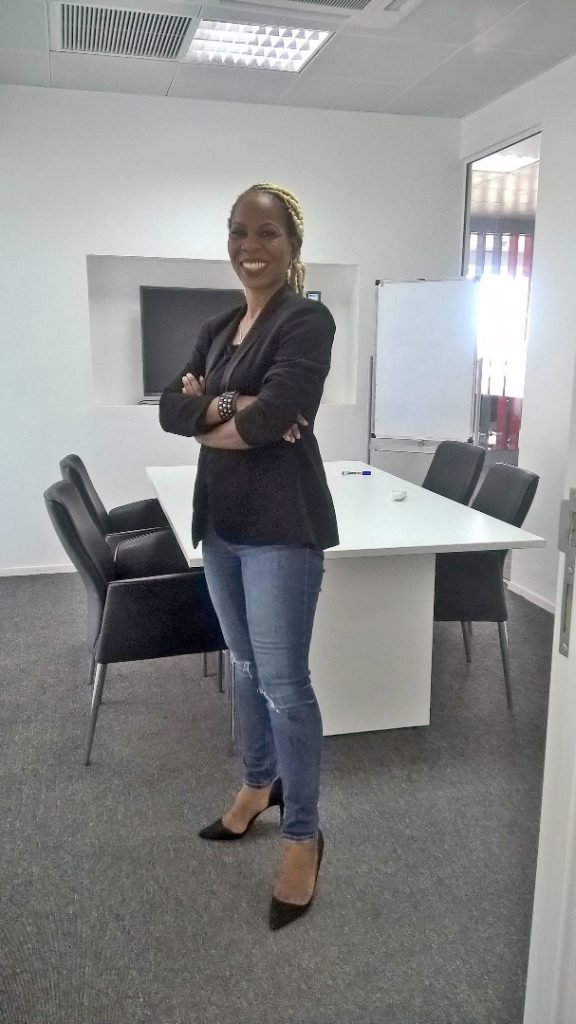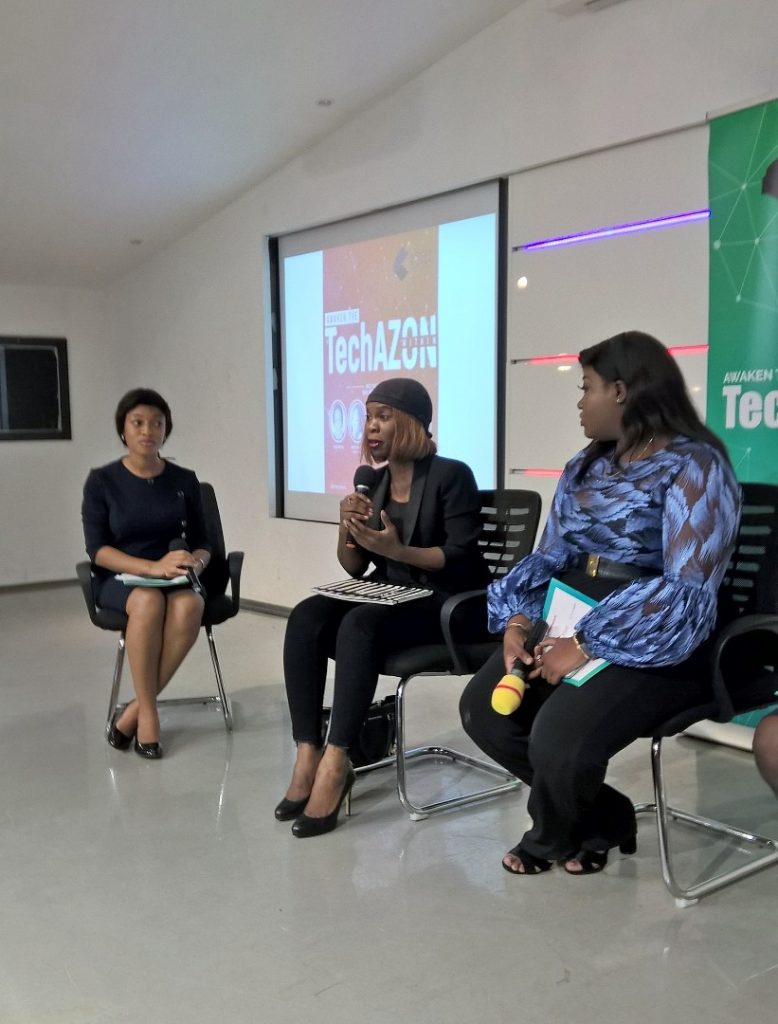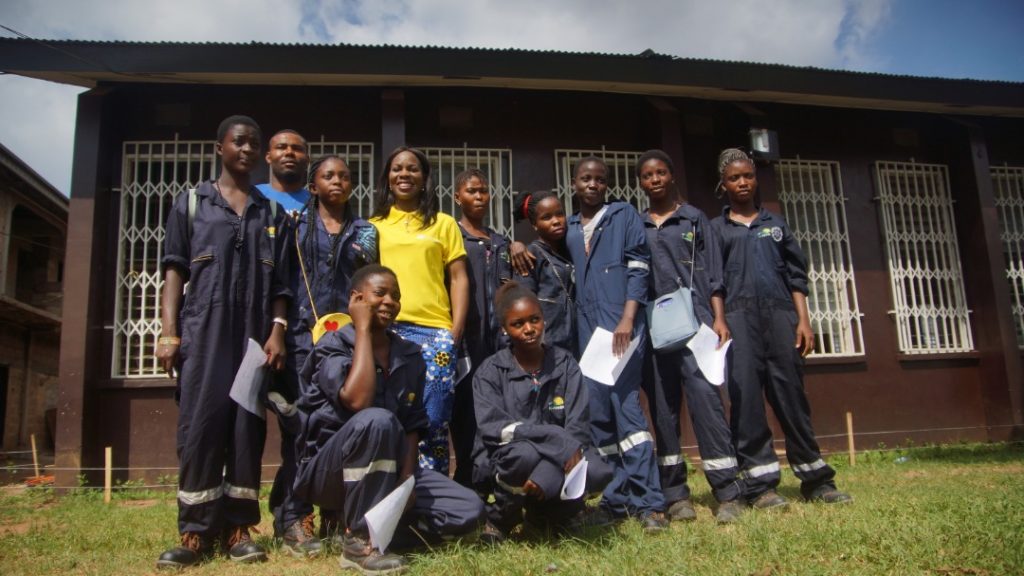2020 marks Oberuomo ‘Ommo’ Clark’s 20th year in the tech industry as an expert software developer. Like mos t people, she did not set out to study a tech-related course as a student in Nigeria and in the United Kingdom.
For a little background, before she left Nigeria to study in the UK, she had written the university entrance exam and filled Law as her first, second, and third course of choice. She was so sure she wanted to be a lawyer. She did not get the admission and went to study Business Administration in London instead.
Her entry into the tech sector happened in her final year as a business administration student in the London Metropolitan University when a friend suggested that she should take on an IT-related project for the final year dissertation.
“That was when I knew that building software was what I wanted to do, I did not feel I knew enough so I studied for a Masters degree in Information Systems,” she told me in an extensive virtual interview.
This is her story as a woman in tech.
Starting a career in software development without a care about gender
When she started her first job in Brittannia Software PLC, now Real Asset Management PLC, Ommo was one of the 4 females in the software department. While she learnt a lot on the job, what struck her most was that she was able to apply everything she had learnt as a student in her job.


“I had wondered in school if all what I was learning would actually be useful for me in the workplace or if I was just learning. It was a learning experience for me to see all what I learnt in school practically come alive as I started working in my field,” she said.
While tech is often perceived as a male-dominated field, it was different for Ommo because she saw Information Technology (IT) only as a field she liked and she went for it.
As she said, “when a software is developed, the bits of code that make it up do not know whether it is a male that wrote them or a female. They perform based on how well they are written, regardless of the gender of the developer.”
Starting IBEZ in Nigeria
While at Real Asset Management and observing the founder and management partners of the company, she felt challenged to start her own company, noting that if they could do it then she could do it as well. She left to work with other companies including as an IT personnel with the Lehman Brothers in the UK before coming back to Nigeria.
In 2013, she started iBez Nigeria as her response to the challenges she and other people encounter while living in the country. One of the challenges was getting handymen to make repairs or get things done for homes and businesses. Realizing that it was not a problem of lack, but of not being able to reach the handymen, Ommo designed handy-jacks, and built it with her team.
When she started out, one of the big challenges she had was nurturing and growing a business in Nigeria. For her, being a woman in business in Nigeria is a daily challenge and is something she keeps working at.
Suggested read: #WomenInTech – How a $5,000 Funding Spurred Oreoluwa Lesi to Empower More Than 10,000 Girls with Digital Skills
She told me excitedly, “I just finished a 1-month course for women in business. There were about 25 women-owned businesses represented there by the attendees and they were businesses with years of experience. Some of them turn over millions in revenue, and yet we all came to learn how to do business better and get better results.”


“My support system is also very important to me. I am surrounded by people who are strong and who get things done, and because of that, achieving seemingly big goals has always looked like an everyday thing to me.”
Helping people find jobs during the lockdown period
As her company, iBez, keeps growing, the challenges brought by the COVID-19 has opened up new ways for the business to make more impact on other businesses. Realising that the hardest-hit businesses at this time are those with the least digital footprints and tech infusions, the company has focused more on getting businesses online.
“We’ve been able to help a significant number of businesses get online and start selling on the e-commerce websites we build for them. On the other hand, we have also helped people re-engineer their businesses and bring back the aspects that have either fizzled away or died completely due to challenges brought by the coronavirus outbreak and other factors,” she said.
Suggested read: #WomenInTech- How Lola Salako is Helping Cancer Patients Access the Right Specialist Care Through Oncopadi
A number of small and medium scale businesses have not yet caught up with digital marketing and how to use it to their advantage. This has been glaring particularly during the lockdown period. Ommo says that for these businesses, finding ways to create trainings that are most beneficial are some of the most significant things that Ibez has done since the COVID-19 broke out in the country.
‘There are opportunities that my company has not fully explored yet, and one of them is Handy-Jacks,” she says. “This is a bittersweet one for me, because we had, and still have, a golden opportunity to make more impact with the app. We should have gotten more tradespeople signed up earlier and we should have projected and pushed the product a lot more than we have done.”
Handy-Jacks can be described as Ommo’s personal project which a number of people in iBez have worked on at different times. The application connects artisans with people who need their services. Since it was launched in March 2016, some of the people who have used it have given positive reviews about the handymen who have they have hired through the site.


“While the lockdown was in place, we had a lot of people reach out to us that they needed handymen, we also spoke to handymen who told us ‘we no wan thief o, we just wan work’,” she said.
“For these people, handy-jack was a product that gave them job opportunities and helped them make a living. Going forward, we are putting more focus on Handy-Jacks so that we can help more artisans consistently get good jobs and get paid.”
As the CEO of her own company, as a student both in her undergraduate and Masters days, and in all the places she has applied herself, one of what drives Ommo is this: whatever is worth doing is worth doing well.
“When I am about to get into anything, my mindset is always to do it the best way I can. I am not a competitive person, but I like to be first and it is not because I want you to be last. I just want to be the best that I can be,” she concluded.
The story of Ommo Clark can be captured in the action phrase ‘pursuit of excellence.’ And while it has seen considerable mileage, it is only just beginning.






